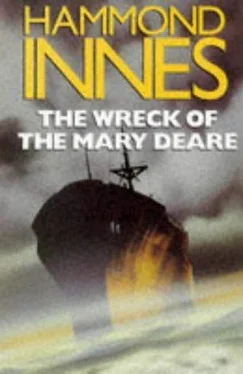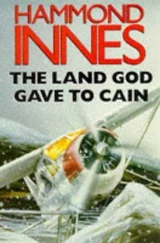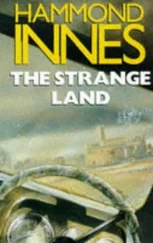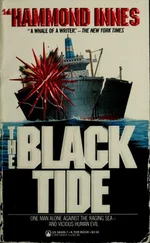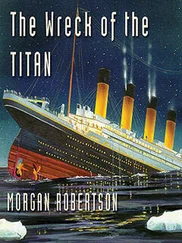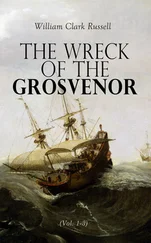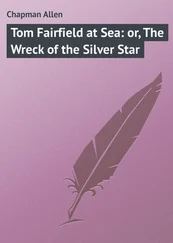Hammond Innes - The Wreck Of The Mary Deare
Здесь есть возможность читать онлайн «Hammond Innes - The Wreck Of The Mary Deare» весь текст электронной книги совершенно бесплатно (целиком полную версию без сокращений). В некоторых случаях можно слушать аудио, скачать через торрент в формате fb2 и присутствует краткое содержание. Жанр: Морские приключения, на английском языке. Описание произведения, (предисловие) а так же отзывы посетителей доступны на портале библиотеки ЛибКат.
- Название:The Wreck Of The Mary Deare
- Автор:
- Жанр:
- Год:неизвестен
- ISBN:нет данных
- Рейтинг книги:3 / 5. Голосов: 1
-
Избранное:Добавить в избранное
- Отзывы:
-
Ваша оценка:
- 60
- 1
- 2
- 3
- 4
- 5
The Wreck Of The Mary Deare: краткое содержание, описание и аннотация
Предлагаем к чтению аннотацию, описание, краткое содержание или предисловие (зависит от того, что написал сам автор книги «The Wreck Of The Mary Deare»). Если вы не нашли необходимую информацию о книге — напишите в комментариях, мы постараемся отыскать её.
The Wreck Of The Mary Deare — читать онлайн бесплатно полную книгу (весь текст) целиком
Ниже представлен текст книги, разбитый по страницам. Система сохранения места последней прочитанной страницы, позволяет с удобством читать онлайн бесплатно книгу «The Wreck Of The Mary Deare», без необходимости каждый раз заново искать на чём Вы остановились. Поставьте закладку, и сможете в любой момент перейти на страницу, на которой закончили чтение.
Интервал:
Закладка:
‘There won’t be any help. No call went out.’ He leaned suddenly down towards me, his hands clenched and his jaw, thrust into the grey light coming in through the porthole, showing hard and knotted. ‘Why the hell didn’t you stay on your yacht?’ And then he turned abruptly and made for the door.
He was halfway through it when I called after him. ‘Taggart!’ I swung my legs off the bunk.
He spun round on his heels as though I’d punched him in the back. ‘I’m not Taggart.’ He came back through the doorway. ‘What made you think I was Taggart?’
‘You said you were the captain.’
‘So I am. But my name’s Patch.’ He was standing over me again, a dark shadow against the light. ‘How did you know about Taggart? Are you something to do with the owners? Is that why you were out there …’ The wildness went out of his voice and he wiped his hand across the coal dust grime of his face. ‘No. It couldn’t be that.’ He stared at me for a moment and then he shrugged his shoulders. ‘We’ll talk about it later. We’ve plenty of time. All the time in the world. Better get some sleep now.’ He turned then and went quickly out.
Sleep! Five minutes ago that was what I’d wanted most in the world. But now I was wide awake. I won’t say I was scared; not then. Just uneasy. That the man should behave oddly was not surprising. He had been twelve hours alone on the ship. He’d put out a fire single-handed and he’d stoked furnaces till he was on the brink of exhaustion. Twelve hours of hell; enough to unbalance any man. But if he was the captain, why wasn’t he Taggart? And why hadn’t the ship radioed for assistance?
I got up stiffly off the bunk, pulled on a pair of sea boots that were lying under the desk and staggered out into the corridor. There was a lot of movement on the ship now. Lying broadside to the seas, she was rolling heavily. A rush of cold air brought with it the battering noise of the wind. I went straight up to the bridge. It was raining and visibility was down to less than a mile; the whole sea was a dirty white of breaking water with the spray smoking from the crests and streaming away before the wind. It was already blowing gale force in the gusts.
The compass showed the ship lying with her bows to the north. The wind had backed into the west then; almost a dead run to Peter Port. I stood there working it out, listening to the thundering of the gale, staring out at that bleak waste of tumbled water. If Hal made it — if he got under the lee of Guernsey and made Peter Port… But it would take him several hours and he wouldn’t realise at first that no distress signal had been sent out. Even when he did, the lifeboat would have to fight the gale to reach us; it would take them six hours at least, and by then it would be dark. They’d never find us in the dark in this sort of weather.
I turned abruptly and went through into the chartroom. A new position had been marked on the chart; a small cross two miles northeast of the Roches Douvres with 11.06 pencilled against it. It was now eleven-fifteen. I laid off the line of our drift with the parallel rule. If the wind held westerly we should drive straight on to the Plateau des Minquiers. He had discovered that, too, for a faint pencil line had been drawn in and there was a smudge of dirt across the area of the reefs where his fingers had rested.
Well, at least he was sane enough to appreciate the danger! I stood, staring at the chart, thinking about what it meant. It wasn’t a pleasant thought. To be driven ashore on the rocky cliffs of Jersey would have been bad enough, but the Plateau des Minquiers….
I reached out to the bookshelf above the chart table, searching for Part II of the Channel Pilot. But it wasn’t there. Not that it mattered. I knew them by reputation: a fearful area of rocks and reefs that we call The Minkies.
I was thinking about the Minkies and how it would feel to be on board a ship being pounded to pieces in such a maelstrom of submerged rocks when I noticed the door at the back of the chartroom with W/T stencilled on it. There was a steep ladder with no door at the top and as soon as I entered the radio shack I knew why no distress call had been sent out. The place had been gutted by fire.
The shock of it halted me in the doorway. The fire in the hold, and now this! But this was an old fire. There was no smell of burning, and planks of new wood had been nailed over the charred gaps that the fire had burned in roof and walls. No attempt had been made to clear the debris. The emergency accumulators had come through the burned-out roof and lay on the floor where they had fallen; one had smashed down on to the fire-blackened table and had crushed the half-melted remains of the transmitter. Bunk and chair were scarcely recognisable, skeletons of blackened wood, and the radio equipment fixed to the walls was distorted beyond recognition and festooned with metal stalactites where solder had dripped and congealed; more equipment lay on the floor, black, twisted pieces of metal in the debris of charred wood. Whatever had caused the fire, it had burned with extraordinary ferocity. Water had seeped in through the gaps in the walls, streaking the blackened wood. The wind stirred the sodden ashes, shaking the rotten structure as it howled round the bridge.
I went slowly back down the ladder to the chartroom. Maybe the log book would tell me something. But it was no longer open on the table. I went through to the wheelhouse and was halted momentarily by the sight of a shaggy comber rearing up out of the murk on the port bow, spindrift streaming from its crest. It crashed down on to the iron bulwarks, and then the whole fore part of the ship, all except the mast and derricks, disappeared beneath a welter of white water. It seemed an age before the shape of the bows appeared again, a faint outline of bulwarks rising sluggishly, reluctantly out of the sea.
I hurried down the companion-way and made straight for the captain’s cabin. But he wasn’t there. I tried the saloon and the galley, and then I knew he must be down in the stokehold again. There was no doubt in my mind what had to be done. The pumps had to be got going. But there was no light in the engine-room, no sound of coal being shovelled into the furnaces. I shouted from the catwalk, but there was no answer; only the echo of my voice, a small sound lost in the pounding of the waves against the outside of the hull and the swirl of water in the bilges.
I felt a sudden sense of loss, a quite childish sense of loneliness. I didn’t want to be alone in that empty ship. I hurried back to his cabin, the need to find him becoming more and more urgent. It was empty, as it had been before. A clang of metal aft sent me pushing through the door to the boat deck, and then I saw him. He was coming towards me, staggering with exhaustion, his eyes staring and his face dead white where he had wiped it clean of sweat and coal dust. All his clothes were black with coal and behind him a shovel slid across the deck. ‘Where have you been?’ I cried. ‘I couldn’t find you. What have you been doing all this time?’
‘That’s my business,’ he muttered, his voice slurred with fatigue, and he pushed past me and went into his cabin.
I followed him in. ‘What’s the position?’ I asked. ‘How much water are we making? The seas are breaking right across the bows.’
He nodded. ‘It’ll go on like that — all the time now — until the hatch cover goes. And then there’ll only be the shored-up bulkhead between us and the sea-bed.’ It was said flatly, without intonation. He didn’t seem to care, or else he was resigned.
‘But if we get the pumps going…’ His lack of interest checked me. ‘Damn it, man,’ I said. ‘That was what you were doing when I came aboard, wasn’t it?’
Читать дальшеИнтервал:
Закладка:
Похожие книги на «The Wreck Of The Mary Deare»
Представляем Вашему вниманию похожие книги на «The Wreck Of The Mary Deare» списком для выбора. Мы отобрали схожую по названию и смыслу литературу в надежде предоставить читателям больше вариантов отыскать новые, интересные, ещё непрочитанные произведения.
Обсуждение, отзывы о книге «The Wreck Of The Mary Deare» и просто собственные мнения читателей. Оставьте ваши комментарии, напишите, что Вы думаете о произведении, его смысле или главных героях. Укажите что конкретно понравилось, а что нет, и почему Вы так считаете.
